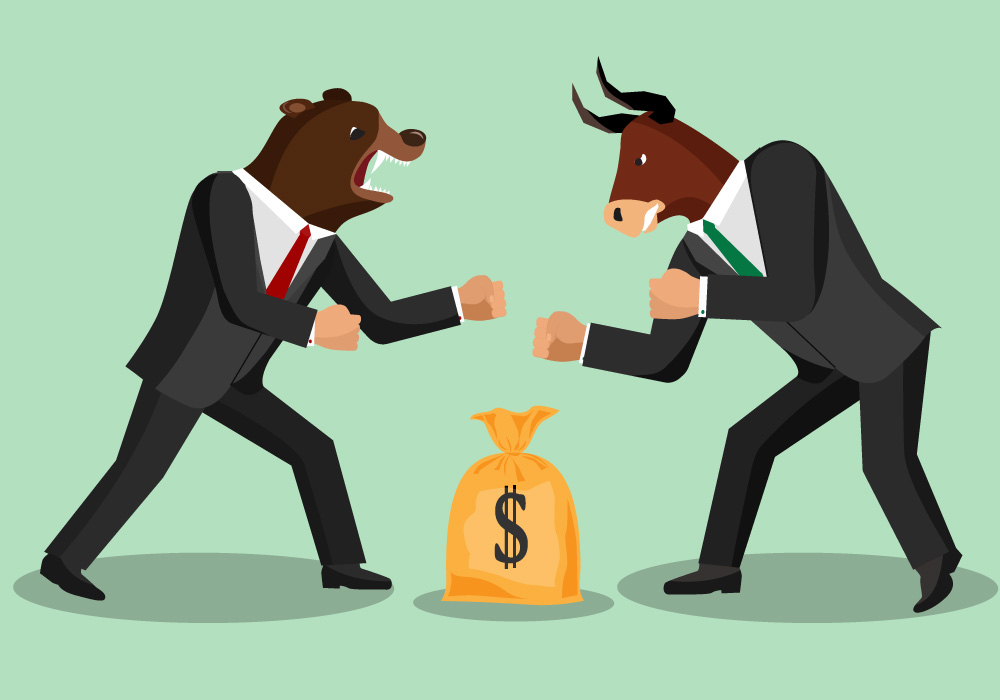I played golf the other day with a friend who asked about my outlook for the stock market.
“I like it,” I told him.
“Yeah,” he said. “I’ve been watching it take off and I can’t decide whether to get back in or not.”
Uh-oh. I had a pretty good idea what was coming.
My friend confessed that he is totally in cash – and gold – and has missed the new bull market entirely.
Turns out that he subscribes to an investment letter by So-and-So, who is quite bearish.
So-and-So argues that the U.S. economy is about to implode and take the dollar and the stock market down with it. So you should own gold instead.
I told my buddy that I’m in the same industry and have known So-and-So for many years.
We’ve even had friendly debates at investment conferences.
So-and-So has been calling for the next Great Depression and the biggest bear market in history for, oh, about 40 years now.
“Really?” my friend said with astonishment. “Because he draws his conclusions based on what is happening right now.”
Very true. So-and-So always draws his conclusions based on what’s happening now.
It’s just that – whatever that may be – his conclusions remain the same.
He advises you sell stocks. (Which you never should have bought in the first place.) And buy gold.
This advice has not been particularly good in the past. Nor is it likely to be a winner in the future.
I have nothing against gold.
I’m not into numismatics because, in my opinion, the spreads are too big and the prices too subjective.
But for years I collected 1-ounce bullion coins.
I have lots of Gold Eagles, Canadian Maple Leafs, South African Krugerrands, Austrian Philharmonics, Chinese Pandas and many others.
Every couple of years, I even take them out and look at them.
They’re lovely. But I don’t consider them investments.
Why? Because gold is not a productive asset.
If you buy an ounce of gold, all you will have in 10 years or 10 million years is an ounce of gold.
It won’t multiply, make interest payments, pay dividends or provide rental income.
It will just sit there and look beautiful.
There’s nothing wrong with that. It’s just not a great investment.
For example, if you put $10,000 into gold in January 1980, it would be worth around $20,000 today.
That’s better than a sharp stick in the eye, as my old man used to say.
But $10,000 invested in the S&P 500 over the same period – with dividends reinvested – would be worth over $1.25 million today.
Gold bugs will say that is not a fair comparison since gold was at a peak in early 1980, while stocks were about to begin one of the biggest bull markets of the 20th century.
But over the very long haul, the difference is just as dramatic.
Dr. Jeremy Siegel at the Wharton School of the University of Pennsylvania is perhaps the nation’s best authority on the long-term performance of various asset classes.
As he noted in the latest edition of his investment classic Stocks for the Long Run, every dollar invested in gold way back in 1802 was worth four times as much – adjusted for inflation – by the end of 2021.
Yet every dollar invested in U.S. stocks over the period – again, adjusted for inflation – was worth more than $2.3 million.
That’s not a misprint.
Over the last couple centuries, every dollar invested in a diversified portfolio of common stocks – not even uncommonly good ones – turned into 2.3 million times as much after inflation.
That’s the difference between investing in profitable businesses and buying a shiny element on the periodic table.
Yet So-and-So likes gold. Hates stocks.
He felt that way decades ago. And – if he is still pulling in oxygen – he will feel that way decades from now.
If you see him – or any permabear – at an investment conference, be sure to peg him with my favorite question during the Q&A: When was the last time you were bullish on stocks?
His answer will let you in on a little secret.
So-and-So is not really giving investment advice.
He is delivering a worldview that has changed over the last half-century about as much as the constellation Orion.
There’s more than a little irony here…
While he strongly insists that you should sell all the businesses in your portfolio, you’ll notice that he hasn’t sold his business.
His business is telling subscribers to sell their businesses.
That must be a profitable line of work. Or, at least, better than putting that money into gold instead.
Hmm, yes. There is much that So-and-So says – and does – that is worth contemplating.
